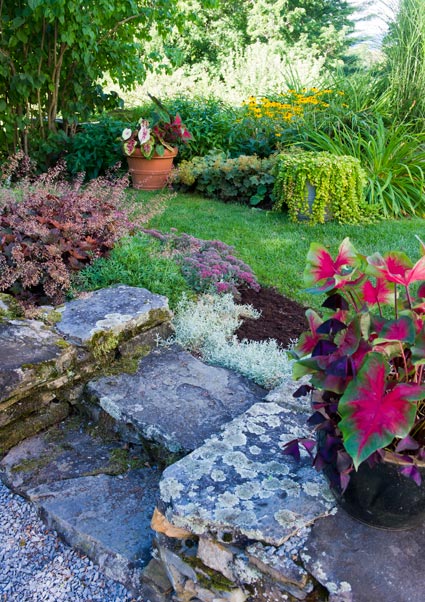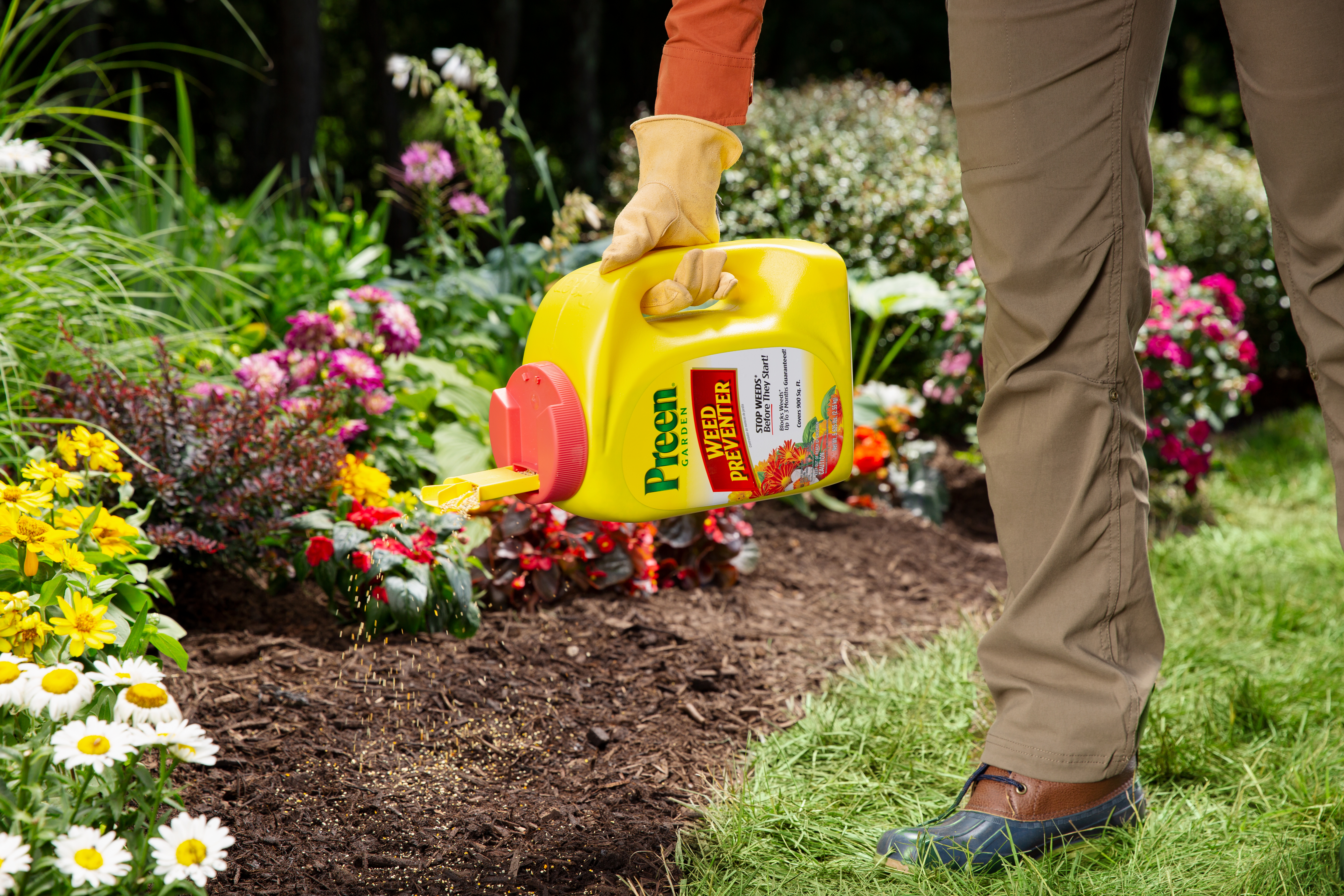"De-Jungling" After a Summer Vacation
Tips to get back in control when you return to an overgrown yard.
Even for those who love to garden, summer holds many attractions that can lure one away from necessary garden chores. Double that for indifferent gardeners. But a healthy, well-tended weed-free garden is actually an easier garden to maintain. To help busy gardeners cut to the chase, here’s a quick list of proactive measures that pay off by minimizing work or maximizing results over the long run.

Summer Garden.
Just as too much water can damage a garden, so can too much fertilizer. For most plants, fertilizer is desirable when they are growing most rapidly in spring and early summer. As the days grow warmer, especially if conditions are dry, fertilizer is not as useful. So monitor conditions and only feed in summer if it is cool and moist. In most cases, especially with woody perennials such as roses, you want to stop fertilizing in late summer and fall. Feeding encourages new growth, which can be damaged when the weather turns nippy.

Applying Preen.
To win the war on weeds, focus on their seeds. It’s logical: if just one weed typically produces 15,000 or more seeds per season, then each weed you eliminate reduces future weeds exponentially. First, pull existing weeds before they go to seed. Second, stop the millions of dormant weed seeds lurking in garden soil from sprouting. If you didn’t mulch in spring, consider mulching now or in fall. Mulch denies weed seeds the light they need to germinate. It also helps soil retain moisture and keeps soil temperatures even. For maximum weed prevention, apply a sprinkling of Preen Garden Weed Preventer atop mulch to further target weed seeds in soil or mulch, plus those newly carried in by the wind, birds, or animals. Preen prevents weed seeds from rooting. Spring is the optimal time to apply Preen but it’s never too late to start. Different weed seeds germinate at different times, all season long. If you applied a pre-emergent in spring to hit early sprouters, apply a second application in mid-season to knock out seeds that germinate in late summer and fall. Remember, however, that Preen prevents new weeds from growing. It doesn’t kill established weeds. Apply weed preventers after weeding. Because, ironically, the act of pulling weeds often exposes dormant weed seeds buried in the soil, encouraging them to sprout!
When voracious insects invade, many gardeners despair. Often the best offense against bad bugs like Japanese beetles and others is to harvest them before they harvest your garden. When they first appear and are few, it’s easy to pick them off by hand and squish them or knock them into a jar of soapy water where they can’t swim or fly away. The trick is to eliminate as many as possible before they decimate your plants, or worse, lay eggs that will multiply the problem in the future. If the pest infestation worsens, consider spraying plants with insecticidal soap.
Taking a few proactive steps in the garden now and then pays off down the road in time and effort saved, thus freeing up busy gardeners to enjoy summer and its blooming benefits more fully.